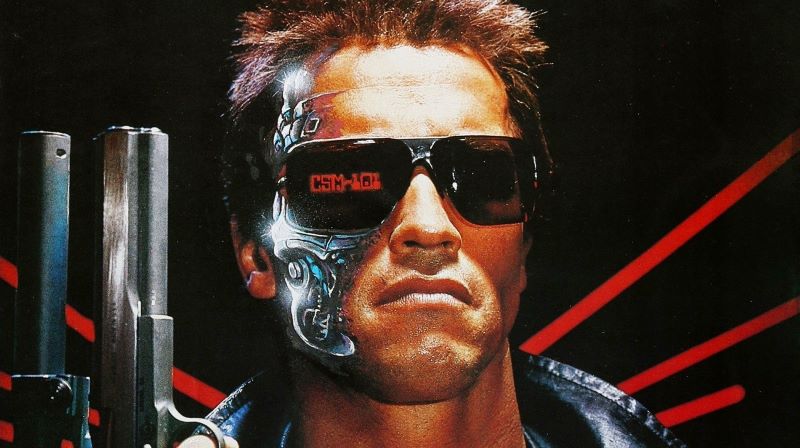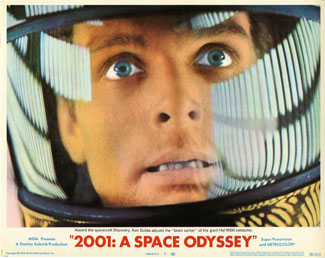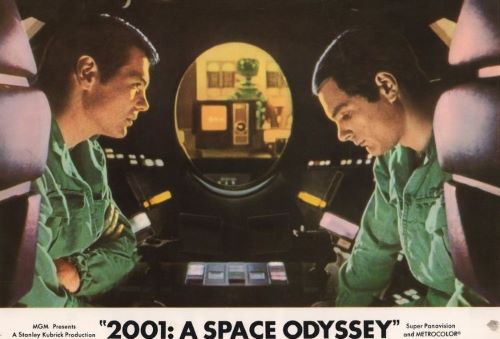
The media-tech industry made an abrupt pivot in recent months embracing artificial intelligence (AI) that is upending movie marketing in data analysis, content creation, and interacting with audiences. Proponents say the computer technology possesses extraordinary capabilities to craft persuasive content and messages of all kinds.
AI is the simulation of human intelligence done by computers. When done right, AI is very intuitive to the point of being able to “read our minds.”
So-called “generative AI” — original content not made by humans — is already racing across society. An AI-generated song “Heart on My Sleeve” mimicking vocals of rappers Drake and The Weeknd generated 15 million TikTok views and 600,000 Spotify streams. It was yanked days ago at behest of Universal Music, which claims copyright infringement.
For entertainment marketers, there’s an “arms race” to be the fastest and best to get AI to assist in analyzing data, crafting campaigns, quickly adjusting on the fly based on early consumer reaction, cluttering the landscape with a flood of marketing content, and precise monitoring of competition. With AI’s smarts, expect that automated chat features become human-like.

The promise is that AI will craft campaigns that are uniformly on-target and impactful. Maybe too “uniform”? Will that make “going with my gut feeling” in decision-making a quaint relic of that past? Until now, Hollywood marketers have only dabbled in AI as the technology was in development.
One casualty of the AI revolution is that old bromide “seeing is believing.” AI can conjure up credible “deep fake” images of the familiar that are altered to become bogus (such as the Pope wearing a garish puffy winter coat and Sylvester Stallone in the signature oh-no “Home Alone” face image replacing Macaulay Culkin). That impacts marketing in both what content is generated and unsanctioned, third-party content that is disruptive.
An irritation for Hollywood is that deep fakes don’t generate any income for celebrities and other sourced intellectual property (IP); copyright law is unclear because famous content can be reinterpreted legally, if the new version is deemed “transformative.”
Overall in the AI revolution, pundits expect a raft of disruptions for humanity, both good and bad: Students will be able turn in flawless essays despite poor writing skills, most business correspondence will filter through AI, creative content output will mushroom, smaller enterprises will be empowered leveling competition with giants, data analysis will become more sophisticated, industries will become increasingly automated, since AI is a mashup of human data it may well entrench human bias, and, finally, criminals will harness AI as a force-multiplier. If AI is so smart, it can be expected to be particularly persuasive in crafting communications for both good and for bad purposes.
In Hollywood, a lively debate already erupted if AI-created screenplays and other creative works can get legal protections. The aforementioned generative AI manufactures text, imagery, audio and synthetic data.
A Wall Street Journal story on this debate in early April is headlined “Who Owns SpongeBob? AI Shakes Hollywood’s Creative Foundation.” The initial answer for Hollywood is “no” because only a person can have property rights (corporations are granted status of a person too); but a simple work-around is to make the human or corporation that initiates AI as the “author” for legal purposes.
AI’s power is stoking fears, particularly worrying what it will evolve into if really more intelligent than its human handlers. Will there be going pains where AI automates tasks willy-nilly, some of which will be harmful to humanity

“AI systems with human-competitive intelligence can pose profound risks to society and humanity,” starts an open letter dated March 22 signed by experts calling for a pause in AI implementation.
A New York Post article dated April 20 says that “Google reportedly moved forward with the troubled launch of its AI chatbot Bard last month despite internal warnings from employees who described the tool as a ‘pathological liar’ prone to spewing out responses riddled with false information that can ‘result in serious injury or death.’” That conjures the plot of 1984 sci-fi movie “The Terminator” about the aftermath when a computer technology nearly destroys humanity (the featured image for this article).
In a sign of moving fast, instant messenger Snap (Snapchat) put this warning on its AI in February. “My AI is prone to hallucination and can be tricked into saying just about anything. Please be aware of its many deficiencies and sorry in advance!” But it is launched because the AI race is on.
The provocateurs at Vice Media reported what happened when an AI program was instructed to “destroy humanity,” “establish global dominance,” and “attain immortality.” The AI called ChaosGPT complied though fortunately its efforts were ineffective. ChaosGPT “tried to research nuclear weapons, recruit other AI agents to help it do research, and sent tweets trying to influence others,” says a Vice story on the escapade.
A more near-term fear wiping out a vast number of entry-level, white-collar office jobs because AI can do the work cheaper, faster and better than humans, which is suggested.
Microsoft is considered the leader in Silicon Valley because of its fortuitous $1 billion investment in 2019 in startup OpenAI. “No private company is hotter than OpenAI,” says a CBNC business article dated April 8. “In November, the San Francisco-based startup introduced ChatGPT, a chatbot that went viral thanks to its ability to craft human-like replies to users’ queries about nearly any topic.”
That’s akin to reading the mind of a human and also being broadly useful, which most newer technologies aren’t. And Microsoft is offering OpenAI to those using its other services, so the hot new technology isn’t being hoarded but pushed quickly across the marketplace.
The big loser so far in the pivot to AI is Facebook/Meta Platforms, which invested billions in research & development to build out the metaverse (Facebook did a massive course-correction to AI, scaling back metaverse).
The metaverse is a collection of virtual-reality (VR) worlds on line that are interconnected. The hope is metaverse companies can sell digital real estate, online booty and digital accessories because of interoperability across virtual worlds.
The Wall Street Journal summed up the change in direction with a March 29 headline: “The Metaverse Is Quickly Turning Into the Meh-taverse.” That story kicked off with “The metaverse that was the hot thing in tech less than two years ago has cooled.”
Another sign that metaverse development is in decline is that Walt Disney Co. laid off its fledgling Metaverse Division, eliminating 50 jobs in late March. That’s significant because Disney has deep pockets and invests heavily in “story telling” that seemed to make the metaverse a prime initiative for investment.
Get ready! AI is ready-to-go for endless uses, so consider it The Next Big Thing.
Related content:
Leave a Reply